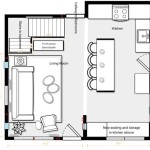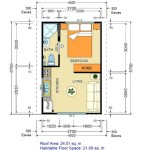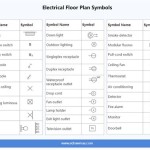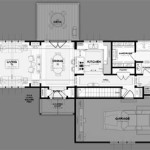Essential Aspects of House Plans: Open Plan Living
Open plan living has become increasingly popular in recent years as people seek more spacious and flexible living arrangements. By removing walls and partitions, open plan living creates a sense of flow and connectivity between different areas of the home, making it ideal for entertaining, socializing, and family gatherings.
Benefits of Open Plan Living
There are numerous benefits to adopting an open plan living design, including:
- Spaciousness and light: Removing walls allows for a greater sense of space and allows natural light to penetrate deeper into the home.
- Flexibility: Open plan living provides greater flexibility in furniture placement and room usage, making it easier to adapt to changing needs and lifestyles.
- Improved social interaction: The open layout encourages interaction between different areas of the home, fostering a sense of community and togetherness.
- Enhanced aesthetics: Open plan living creates a more visually appealing and modern aesthetic, with uninterrupted sightlines and a cohesive flow between spaces.
Considerations for Open Plan Living
While open plan living offers many advantages, there are also some considerations to keep in mind:
- Privacy: Open plan living reduces privacy between different areas of the home, especially between sleeping and living areas.
- Noise: Without walls to absorb sound, noise can travel more easily throughout the open space, potentially disrupting activities in different areas.
- Temperature control: Heating and cooling an open plan space can be more challenging than in traditional floor plans, as there is less opportunity for individual room temperature control.
- Clutter and visibility: Open plan living can make it more difficult to hide clutter, so it is important to maintain a tidy and organized space.
Designing for Open Plan Living
To successfully design an open plan living space, consider the following tips:
- Define distinct areas: Use furniture, rugs, lighting, and other elements to define different areas within the open space, such as living, dining, and kitchen areas.
- Consider traffic flow: Ensure there is ample space for movement and that furniture is not obstructing walkways.
- Incorporate natural light: Maximize natural light by incorporating large windows and skylights, and minimize the use of heavy curtains or blinds that block light.
- Use vertical space: Add visual interest and create separation between areas by using bookcases, shelves, and hanging plants.
- Choose cohesive furniture and finishes: Maintain a sense of unity by selecting furniture and finishes that complement each other and reflect the desired overall aesthetic.
Conclusion
Open plan living offers a range of benefits, creating spacious, flexible, and aesthetically pleasing living environments. By carefully considering the advantages and considerations, and implementing thoughtful design strategies, you can create an open plan living space that meets your needs and enhances your daily life.

Floor Plan Friday Open Dining Living And Kitchen With Raised Ceiling Room Plans House Layout 4 Bedroom

Free Editable Open Floor Plans Edrawmax

Modern Open Floor House Plans Blog Eplans Com

Double Story House Plans Upside Down Designs Reverse Living Seabreeze Rectangle Apartment Floor Two

House Design Trends What S Popular In Cur Floor Plans Extra Space Storage

Floor Plan Friday 3 Bedroom Modern House With High Ceilings Open

Open Concept Ranch Floor Plans Houseplans Blog Com

Floor Plan Friday Open Wide Block Activity Room House Plans Home Design

30 Gorgeous Open Floor Plan Ideas How To Design Concept Spaces

10 Small House Plans With Open Floor Blog Homeplans Com








